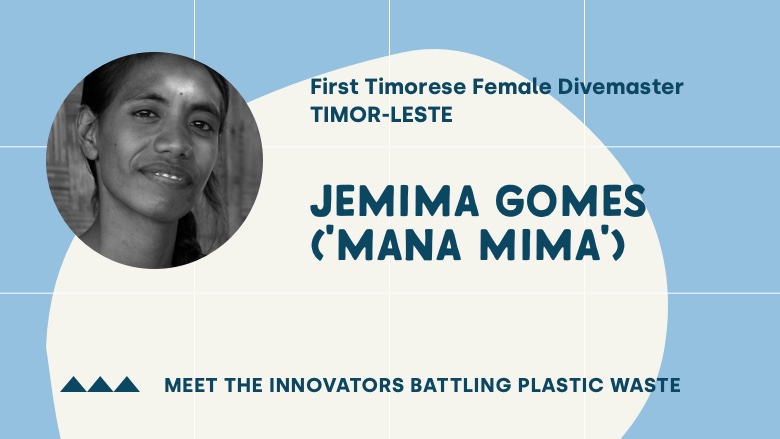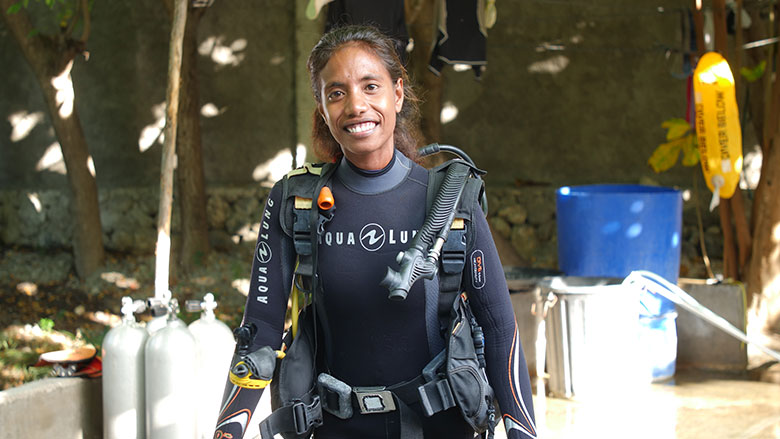Jemima (Mima) Gomes lives in the remote community of Biqueli, Atauro Island, 20 kilometers off the coast of Dili. The waters around Atauro are impressive and globally significant, hosting the most biodiverse waters in the world. But like many coastal communities, plastic pollution poses a threat. Mima recently completed training to become the first female Timorese PADI Divemaster in the whole country, and the first female scuba diver in Atauro and is now advocating for marine conservation in her community.
Tell us about yourself and your work.
I come from a fishing family. As a child I helped my father pull in the fishing nets every day. Now I work for Blue Ventures and have learnt how to dive and take care of our oceans. I was very nervous to start diving, especially using the heavy tank to go deeper. The deep water was very scary for me. But I was happy to learn about different levels of diving from open waters, to rescue diving to now being a dive master and of course learning about the marine environment, the coral reefs.
When I dive into the ocean, I feel so peaceful, so natural. I can see that the ocean is really alive, then I go home and tell my family and my neighbors about my experience.
I lead teams of volunteers to dive and collect data from our reefs. We identify different fish, corals and we can see if our reef and seagrass is in good health or maybe parts of our reef have problems like bacteria or marine debris or damage from people and their boats.
How is plastic waste an issue for oceans in Timor-Leste?
I’ve been thinking about plastic in Timor-Leste a lot. This is a big problem for our country and for our island because we don’t have a proper place to put our rubbish. When I go diving, I see a lot of rubbish in the ocean, especially when the wind is coming from the east, which brings the plastic from different countries to our island.
If we have a lot of plastic in the ocean, the fish will eat the plastic. Here on Ataúro island, the men are fishermen, each day they go to catch fish, but if the fish eat the plastic, they will die or maybe we will eat the plastic from the fish which can make us sick. So this is a big problem for the ocean, for our fishermen, for seaweed farmers, for all our community.
How are you helping to address the problem?
Ataúro now has regular, weekly beach cleanups. Volunteers from different countries and people from our community collect the beach rubbish. At our beach cleanup in Beloi, we count the rubbish and put it in our data sheets. That way we have information and can ask our government to think about the problem and make a plan to keep our ocean clean.


